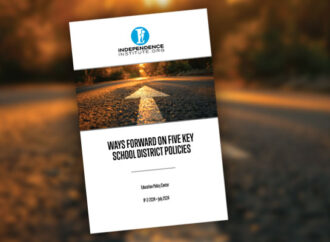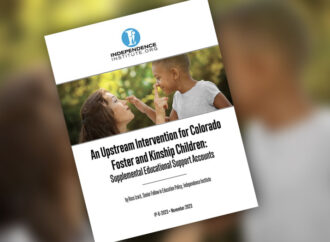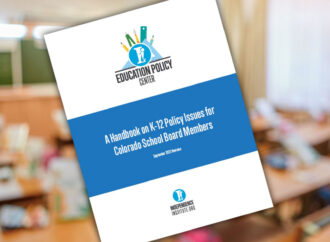Ways Forward on Five Key School District Policies
- July 22, 2024

The Education Policy Center has educated Colorado school board members about policy issues since 2005. Ways Forward on Five Key School District Policies is a publication designed to give school board members a starting point when considering five impactful policy changes. Each school district is unique and requires a tailored approach; therefore, numerous policy variations
READ MORE
Foster and kinship children too often miss out on supplemental services and activities. A new breed of program called a Supplemental Educational Support Account (SESA) would provide a set amount of annual funding for each student that can be used for services such as tutoring, therapies, music lessons, specialized programs, transportation, and a wide variety
READ MORE
One of the Education Policy Center’s primary goals is to educate local education leaders about important education policy issues, thereby equipping them to make intelligent, well-informed decisions in their school districts. Biennially, we update our K-12 policy issues school board member handbook to provide leaders with historical and current information from a common-sense perspective on
READ MORE
Colorado public school choice, while widespread, is limited by authorization processes and requirements that can be burdensome for new schools of choice, particularly when those processes involve hostile authorizing entities.
READ MORE
Due to extended periods of virtual learning, heightened social tensions, and extensive media coverage of a variety of hot-button issues, parents have taken a keener interest in the business of their children’s education than at any other time in recent memory. Parents have demanded more access to information regarding which curricula schools adopt, which educational
READ MORE
One of the Education Policy Center’s primary goals is to educate local education leaders about important education policy issues, thereby equipping them to make smart, well-informed decisions in their school districts. As part of that effort, the Education Policy Center staff provide biennial education policy briefings to all interested school board candidates, regardless of political
READ MORE